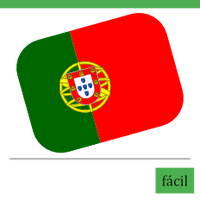Praxe
Bizutage étudiant
tradition or custom
Praxis
custom
Praxe
Praxe
Prassie
プラクセ
Praxe
Праксе.
实践
O termo "praxe" é o nome atribuído a um ritual de iniciação, geralmente realizado no primeiro ano de Universidade, que visa a integração dos novos alunos.
|terme|bizutage universitaire||||attribué à|||||initiation||réalisé|||||||vise à||intégration|||
|term|rite||||assigned|||ritual||initiation|usually|held|||||||aims at||integration of|||students
||||||przypisane|||||||||||||||||||
||||||asignado|||||||realizado|||||||tiene como objetivo||integración|||
Der Begriff "Praxe" bezeichnet ein Initiationsritual, das in der Regel im ersten Studienjahr stattfindet und der Integration der neuen Studenten dient.
The term "praxe" is the name given to an initiation ritual, usually performed in the first year of university, which aims to integrate new students.
Термин "праксе" - это название ритуала посвящения, который обычно проводится на первом курсе университета и направлен на интеграцию новых студентов.
Durante este processo de integração, há uma transmissão de valores dos alunos mais velhos para os novos, sempre na tentativa de manter as tradições da sua respetiva Academia.
||processus|||||transmission|des|valeurs||||anciens||||||tentative||maintenir|||||respective|Académie
||process||integration|||transmission||values||students||||||||attempt||maintain||traditions|||respective|Academy
||||integración|||transmisión||||||||||||intento||||tradiciones|||respectiva|Academia
During this integration process, there is a transmission of values from the older students to the new ones, always in an attempt to maintain the traditions of their respective Academy.
В процессе интеграции происходит передача ценностей от старших студентов к новым, всегда стремящимся сохранить традиции своей Академии.
Nas Universidades, os rituais de receção a novos alunos datam pelo menos desde o início do século XVIII.
|||rituels||accueil||||remontent à|||||||siècle|XVIIIe siècle
|||rituals||welcome|||students|date back|||since||beginning||century|eighteenth century
|||||recepción||||se remontan||||||||
At Universities, the rituals of welcoming new students date back at least to the beginning of the 18th century.
В университетах ритуалы приветствия новых студентов восходят как минимум к началу XVIII века.
Quando D. João V declarou que "mando que todo e qualquer estudante que por obra ou palavra ofender a outro com o pretexto de novato , ainda que seja levemente, lhe sejam riscados os cursos ".
|||V|a déclaré que||ordonne||||tout et tout|étudiant|||acte|||insulter|||||prétexte de novice||bleu|même si||soit|légèrement||soient|annulés||cours universitaires
||||declared||I command|||||student|||action|or||offend|||||pretext of being a novice||newcomer|||is|slightly||be (subjunctive)|stricken off|the|courses
||||declaró|||||||||||||||||||||||||||||
When D. João V declared that "I command that any and all students who, by deed or word, offend another with the pretext of being a beginner, even if only slightly, have their courses scrapped".
Когда король Жуан V заявил: "Я приказываю, чтобы любой студент, который делом или словом оскорбит другого под предлогом того, что он новичок, пусть даже незначительно, был вычеркнут из курса".
Esta proibição não foi suficiente para que, no século seguinte, esses rituais se tornassem em coisas tão brutas como pontapés nas canelas, conhecidos como canelões, ou o rapanço, onde lhes cortavam o cabelo, ou até a pastada, onde os novatos imitavam animais a comer o pasto.
|interdiction|||||||||ces|rituels||deviennent||||grossières||coups de pied||tibias|connus sous||coups de tibia|||coupe de cheveux||leur|coupaient||cheveux||||manger l'herbe|||nouveaux étudiants|imitaient|||||herbe
|prohibition|||sufficient|||||next|these|||become||||brutal||kicks||shins|known as||shins|||hair cutting|where|them|they cut||hair||||eating grass|||newcomers|imitated|||||grass
||||||||||||||||||||||||||||||cięli||||||||||naśladowali|||||
|||||||||||||se convirtieran||||brutas||patadas en||espinillas|||espinillas grandes|||corte de pelo|||les cortaban||||||pastada|||novatos|imitaban|||||
Dieses Verbot konnte jedoch nicht verhindern, dass diese Rituale in so brutale Dinge wie Tritte gegen das Schienbein (canelões), das Abschneiden der Haare (rapanço) oder das Fressen von Gras (pastada) ausarteten, bei dem die Novizen Tiere imitierten.
This prohibition was not enough for, in the following century, these rituals to become things as crude as kicks in the shins, known as canelões, or rapanço, where they cut their hair, or even pastada, where novices imitated animals eat the pasture.
Запрета было недостаточно, чтобы эти ритуалы не превратились в такие жестокие вещи, как удары ногами по голеням, известные как canelões, или rapanço, где они стригут волосы, или даже pastada, где послушники имитируют животных, поедающих траву.
Hoje em dia, as atividades Praxisticas são levadas a extremos que promovem algum criticismo.
||||activités|pratiques de praxe||poussées à||||favorisent||critique
|in|||activities|Praxist activities||taken||extremes||promote some||criticism
|||||||||ekstremy||||
|||||Praxísticas||llevadas||||promueven||crítica
Nowadays, Praxistic activities are taken to extremes that promote some criticism.
В настоящее время деятельность Праксиса доведена до крайности, что вызывает определенную критику.
Isto deve-se muito a pessoas que não fazem o bom uso do seu poder e acabam por através da humilhação e da violência degradar o código e os valores da praxe.
Cela|doit|||||||font pas|||bon usage|||||finissent par||par le biais||humiliation|||violence|dégrader||code de conduite|||||bizutage
||||||||make||||||||end up||through||humiliation|||violence|degrade||code|||||custom
||||||||||||||||||||humillación||||degradar|||y||||
Dies ist vor allem auf Menschen zurückzuführen, die ihre Macht nicht richtig nutzen und den Kodex und die Werte von praxe durch Demütigung und Gewalt herabsetzen.
This is largely due to people who do not make good use of their power and end up, through humiliation and violence, degrading the code and values of practice.
Во многом это происходит из-за людей, которые не используют свою власть должным образом и в итоге унижают кодекс и ценности praxe с помощью унижения и насилия.
Pois, cada academia possui o seu "código de praxe" que é constituído pelas normas praxistas, bem como tudo o que lhe diga respeito.
|||possède|||||code de conduite||||par les||de la praxéologie|||||||concerne|concerne
|||has|||code|||||constituted||rules|practice norms||||everything||to you|concerns|concerns it
|||||||||||constituido|||de praxe||||||||
Well, each academy has its own "practice code" which is made up of praxist norms, as well as everything that concerns it.
В каждой академии есть свой "кодекс дедовщины", который состоит из правил дедовщины и всего, что ее касается.

